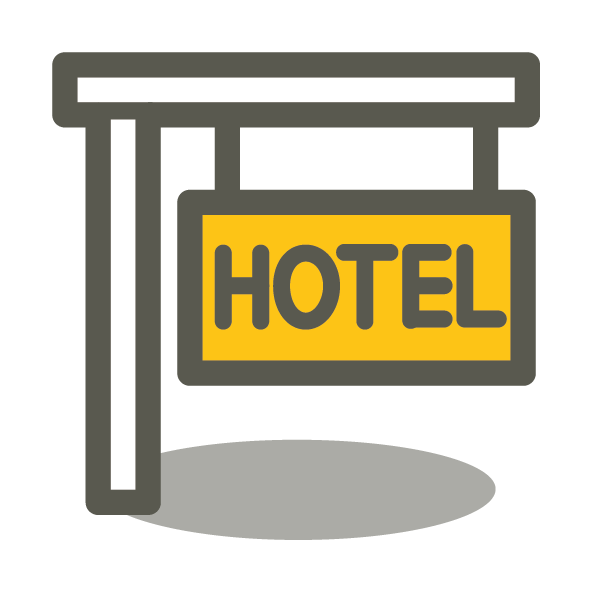This article explores 4 common challenges and discusses practical suggestions for how these might be navigated. The ultimate result can be valuable savings in time and money, allowing greater focus on strategic growth.
Challenge No. 1 – Property valuation & EBITDA
The single most important asset to any hotel business is its property. It doesn’t matter if it’s owned or leased; what counts is the location, the property itself, and the guest experience it provides. These are the critical factors that will drive footfall and profit generation. For this reason, hoteliers can invest significant sums of money on capital improvements to their properties each year, in order to improve the experience for guests. However, we often observe that businesses fail to maximise tax allowances which can result in a decrease in profits and cashflow. And where hoteliers do not have an accurate understanding of the true value of their property and its improvements, via regular valuations this can cause 2 major problems:
- Increased difficulty in leveraging the value of the property to obtain financing and grow the business.
- Valuations included in annual statutory accounts can be left open to challenge.
Working with an experienced accounting and advisory firm with good hotel sector knowledge will not only ensure that tax allowances are maximised but will also help you to understand your hotel’s EBITDA position and its benchmark against similarly positioned companies across the industry. This clarity will ensure that all opportunities for growth and investment can be fully explored and leveraged.
Result: Tax allowances maximised, easier access to investment funds, strategic growth
Challenge No. 2 – Guest Ledger
The guest ledger presents a clear commercial risk in that if it is not well managed and immediately followed up on, recovery of amounts due from guests becomes more difficult the longer it has been since their stay.
We frequently see guest ledgers that are manually maintained and cleared to a further ledger pending receipt from guests. This can often result in confusion in reporting over exactly how much is due from a guest and when it is expected to be received, which can have a knock-on impact in delaying credit control procedures.
We have seen an increase in the digitalisation of businesses over the last few years, accelerated by Covid, and the operators still working with manual records and processes are being left behind. Ensuring that you have a seamless PMS (Property Management System) in place with automatic clear out of the guest ledger & clear integration between FOH (Front of House) and back-office teams can quickly pay dividends and ensure management time is focussed on the strategic direction of the business, rather than being bogged down in reconciliation issues.
Result –Decreased commercial risk, improved efficiency.
Challenge No. 3 – Deposit Ledger
The deposit ledger also requires close monitoring. While the risk surrounding the guest ledger is cash recovery, failure to operate a clear deposit ledger can result in reputational damage if a hotel neglects to offset a pre-received deposit against a room.
We often see non-automated deposit ledgers which hold the deposits on the ledger far beyond the date that the guests stay/event has occurred, which indicates that either:
- The event has taken place, and the deposit has not been offset in the PMS – resulting in an overcharge and possible reputational damage
- The event has taken place, and the deposit has not been offset in the accounting system – leading to a reconciliation issue
- The event was cancelled, and the deposit should either be repaid or credited to the P&L (depending on cancellation policy) – resulting in either a delay in repayment to the guest (reputational damage) or a reconciliation issue.
The implementation of a modern PMS can help to automate the clearing of these deposits and remind FOH teams to apply them, as well as automatically posting to the accounting software, to ensure guests can trust that their deposits will be managed appropriately and the ledger is automatically net down in the accounts, freeing up management time.
Result: improved guest experience, improved efficiencey
Challenge No. 4 – HR Compliance (Right to work / National Living Wage)
Resourcing across the industry has tightened-up since Brexit and this has pushed operators into price competition for key staff. The ability to hire staff from across the EU has been curtailed and it has become more important than ever to ensure that every employee has evidence of their right to work in the UK, which is catching out some operators who have in some cases operated for decades with less red tape to contend with.
On top of the need to operate an auto enrolment pension scheme for employees, the National Living Wage is increasing year on year. This increase is not just having a direct impact on operating margins across the industry, but also indirectly, by increasing the penalties to be levied in the case of non-compliance. The penalties imposed by HMRC have also increased in recent years, now up to 200% of any underpayment.
As a result, it has never been more important to ensure that your HR and payroll teams are on top of common compliance mistakes, for example:
- Deductions from staff’s pay taking their effective rate of pay below the NMW (i.e meal costs, till shortages, travel costs and salary sacrifice schemes)
- Failure to pay staff for time spent training
- Failure to keep on top of changes in apprentices’ wages, resulting from either a) birthdays or b) years of experience
- Where staff accommodation is provided, misapplying or miscalculating the daily accommodation offset amount
- Failure to pay staff for travel time between working locations
- Failure to update minimum wage rates immediately from 1 April in the year of change
- Failure to obtain and retain on file for each employee documentation confirming their right to work in the UK
These common mistakes can be avoided through proactive planning for changes, which tend to arrive on 1 April each year. Many hotels are also implementing modern technologies to automate HR & payroll processes, which save time and help to avoid costly penalties.
Result: Costly penalties and regulator interventions avoided, increased efficiencies
Optimising Capital and Technology Investments
The speed of change across the hotel industry has been rapid and successful companies are being bold in their strategy of heavy investment in the guest experience. This investment comes at a financial cost for both the capital spend and implementation of modern technologies required to run a slick operation.
At Menzies we have expert teams to help you mitigate these common pitfalls and optimise your investments – helping your business to grow profitably and adapt to market and legislative changes. Our advisors can help you to understand the value and growth potential for your business, modernise and automate both accounting and HR processes as well as providing guidance on maximising tax allowances for your capital investments. We regularly help our clients to save time, money and unwanted interventions and fines from regulators – leaving them free to focus on strategic growth and the all-important guest experience.
Menzies – Expert Advisors to the Hotel Industry
In summary, these are just some areas that Menzies experts can help you to save time and money:
- Our capital allowances team can ensure that you receive the maximum tax benefit from any capital work undertaken.
- Our digital transformation and systems advisory teams work with you to understand your business and implement the systems that would best help to integrate and automate historically manual systems, freeing you up to spend more time thinking about growth and strategic direction.
- Our outsourced HR team can advise on practical implementation of HR measures to ensure you remain compliant and future proof your business with understanding of changes in the pipeline.
- Our payroll team can take the burden of constant review of payroll compliance from your teams, giving them back time to focus on strategic objectives.
For help with any of the challenges outlined above, or for any advice around growing and managing your hotel business, please contact a member of our Hospitality and Leisure team today:





